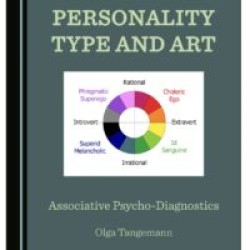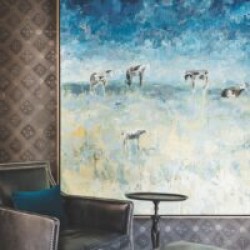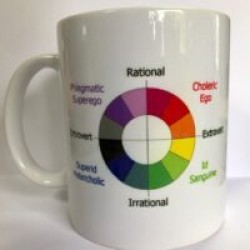John Griffith London (1876-1916) was born in San Francisco of an unmarried mother of wealthy background, Flora Wellman. His father may have been William Chaney, a journalist, lawyer, and major figure in the development of American astrology. Because Flora was ill, Jack was raised through infancy by an ex-slave, Virginia Prentiss, who would remain a major maternal figure while the boy grew up. Late in 1876, Flora married John London, a partially disabled Civil War veteran. The family moved around the Bay area before settling in Oakland, where Jack completed grade school. Though the family was working class, it was not so impoverished as London’s later accounts claimed. Read more.
I.Weisband, Working Materials, 1986. Translated by Dmitri Lytov, edited by Lev Kamensky, 2002
1. “Time does not wait!”. He is untiring in working, science or anything else that brings objective results in the future. He makes everything very rapidly, work “boils” at his hands. Even his gait is very specific, bouncing, and if he can, he prefers to run. A representative of this type the great writer Jack London had changed in his life a lot of occupations: delivery man, worker, prospector, sailor, writer. This was his self-sacrifice in the name of Art and Success.
2. Romantic. Very often he practices alpinism, tourism (one of Jack London’s favorite topics was the struggle against the merciless nature). He is attracted by faraway places; often he is the first who gets drawn into various dubious undertakings. Often he invents romantic adventures and believes in them himself. However, these inventions usually have real prototypes in life. He loves to demonstrate his own courage. Even the negligence of his appearance is challenging to others’ sense of propriety.
3. “An absent-minded professor”. Due to his well-developed abstract thinking he is not always attentive to his appearance. If he cares of his dressing himself, he is always bedraggled, this is why he completely relies upon his partner’s taste and allows him to take charge of routine problems. For the same reason he does not tolerate when others stare at him (this is why his dual The Guardian often avoids to look directly into his interlocutor’s eyes), just because he, due to his inattention to his surroundings, is uncertain of how he appears to others. He is always insecure about his appearance and somewhat worries about his imaginary plainness. He needs a partner who possesses a well-developed aesthetic feeling, whose taste may be quite reliable; he needs to feel: my partner likes me even in spite of her well-developed, fussy and even pretentious taste.
4. Optimistic. He quickly reacts to everything that brings emotions, especially positive. He is as if preprogrammed for rising spirits of his dual (The Guardian) who always looks somewhat scared or angry. He permanently irradiates friendliness, positive emotions, and smiles. He tries to make his partner laugh, shakes and hassles her in all possible ways, until she finally reacts, either positively or negatively, otherwise he will not have information about his condition (of course, in this sentence HE and SHE pronouns may be used vice versa). He likes to relate and to discuss what he has read and heard. It is easy for him to start up a conversation with a person he has never been familiar with.
5. Love for life. He searches permanent and constant human relations. He does not understand very well feelings and attractions of other people; this is why he is careful in this field and is afraid of being funny. He much values human life: a woman of this type, if having to choose the lesser evil, will rather choose to become a single mother than to make an abortion.












Inga Uzyanbaeva:
Первую попавшуюся кофту мы не берем))) мы берем классику, рубашку, водолазку. Перемериваем кучу вещей. или любим пользоваться советами профессионалов или близких, кто разбирается как мы считаем лучше. А комфорт – да нужен именно на уровне, чтобы о нем не думать, но не циклиться. Джечка.